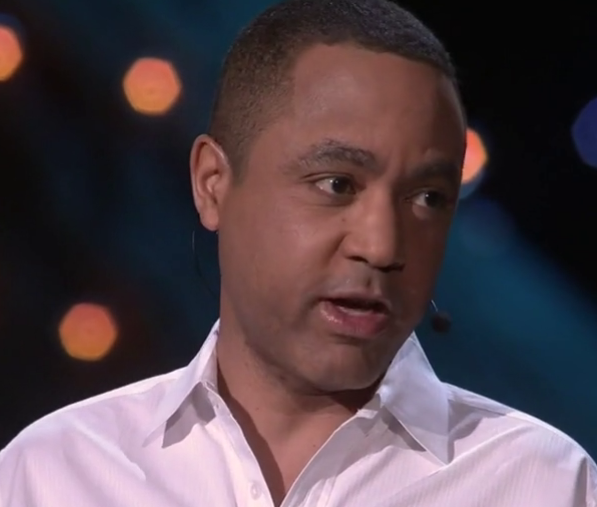Now don't get me wrong, writing has certain advantages.
大家不要误会,文字写作确实有它自己的优势。
When you write, because it's a conscious process, because you can look backwards,
当你写字的时候,因为这是一个有意识的过程,因为你可以回顾过去,
you can do things with language that are much less likely if you're just talking.
你可以用书面语言来完成一些说话时不会表达的事情。
For example, imagine a passage from Edward Gibbon's "The Decline and Fall of the Roman Empire:"
比如,让我们看看爱德华·吉本(英国历史学家)在“罗马帝国衰亡史”一书中的一段(取自第二十四章),
"The whole engagement lasted above twelve hours,
“整个战争持续了至少12小时,
till the graduate retreat of the Persians was changed into a disorderly flight, of which the shameful example
直到波斯人纷纷仓皇溃退,其中表现最可耻的是
was given by the principal leaders and the Surenas himself."
他们的指挥官们以及苏雷纳斯(最高统帅)本人。”

That's beautiful, but let's face it, nobody talks that way.
写的真的很美,但是,说实话,没人这么说话。
Or at least, they shouldn't if they're interested in reproducing. That -- is not the way any human being speaks casually.
或者至少,如果真感兴趣的话也不该这样重复。这--不是人们平常说话时候的样子。
Casual speech is something quite different.
日常对话是非常不同的。
Linguists have actually shown that when we're speaking casually in an unmonitored way,
语言学家实际上已经指出,当我们在轻松的对话时,
we tend to speak in word packets of maybe seven to 10 words.
我们每句话会用大概7到10个字。
You'll notice this if you ever have occasion to record yourself or a group of people talking.
你会注意到这点,如果你有机会录下来自己或者一组人说话。
That's what speech is like. Speech is much looser. It's much more telegraphic.
这就是语言对话的形式。语言对话更松散。也更简洁得多。
It's much less reflective -- very different from writing.
和书面文字表达非常不同,它少了思考性。
So we naturally tend to think, because we see language written so often, that that's what language is,
所以因为我们经常看到写出来的语言,我们就很自然地认为,那就是语言,
but actually what language is, is speech. They are two things.
但实际上语言是言语对话。这是两个不同的事物。



